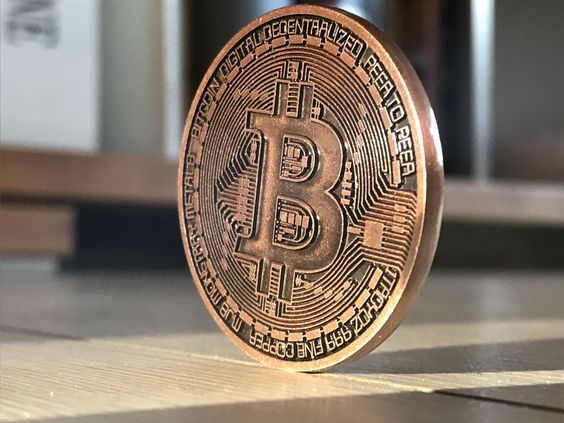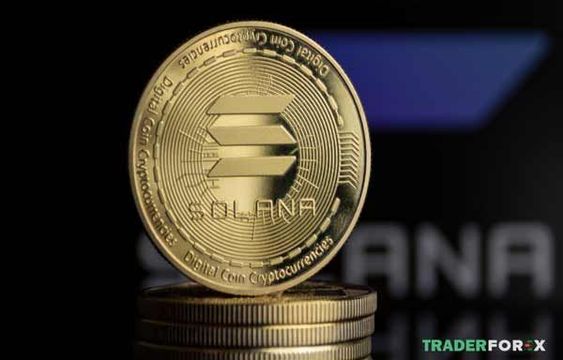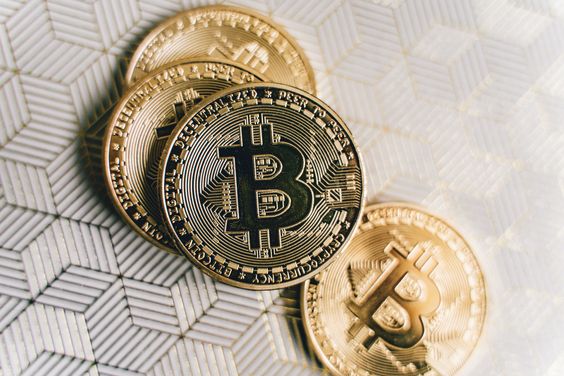Featured Bankman-Fried Receives 25-Year Sentence for FTX Fraud Involving Billions of Dollars
Sam Bankman-Fried, the former billionaire wunderkind and founder of the bankrupt FTX cryptocurrency exchange, received a 25-year prison sentence from a judge on Thursday for embezzling $8 billion from FTX customers. U.S. District Judge Lewis Kaplan delivered the verdict at a Manhattan court hearing, dismissing Bankman-Fried’s assertion that FTX customers did not suffer losses and finding him guilty of seven counts of fraud and conspiracy related to FTX’s collapse in 2022, a case labeled by prosecutors as one of the largest financial frauds in U.S. history.
Judge Kaplan remarked that Bankman-Fried displayed no remorse, stating, “He knew it was wrong… He knew it was criminal.” Bankman-Fried, 32, clad in a beige short-sleeve jail T-shirt, addressed the court for about 20 minutes, expressing regret for the suffering of FTX customers and extending an apology to his former colleagues at FTX, though he did not admit to criminal wrongdoing. He declared plans to appeal his conviction and sentencing.
This verdict marks the climax of Bankman-Fried’s downfall from an immensely wealthy entrepreneur and significant political donor to a prominent target in the U.S. crackdown on misconduct in cryptocurrency markets. U.S. Attorney General Merrick Garland emphasized the seriousness of defrauding customers and investors, cautioning against the belief that financial crimes can be shielded by wealth and influence.
Judge Kaplan’s ruling found that FTX customers lost $8 billion, with equity investors of FTX losing $1.7 billion, and lenders to Bankman-Fried’s Alameda Research hedge fund losing $1.3 billion. He issued an $11 billion forfeiture order and authorized the government to reimburse victims using seized assets.
Federal prosecutors had initially sought a 40 to 50-year sentence, while Bankman-Fried’s defense, led by Marc Mukasey, argued for less than 5-1/4 years.
In his address to the court, Bankman-Fried expressed remorse, stating, “Customers have been suffering… I didn’t intend to downplay that.” He also acknowledged the loss experienced by his FTX colleagues, recognizing the impact of his actions on their efforts. Three former associates, testifying as prosecution witnesses, revealed Bankman-Fried’s direction to utilize FTX customer funds to cover losses at Alameda Research, all of whom have pleaded guilty to fraud.
Judge Kaplan pointed out Bankman-Fried’s falsehoods during his trial testimony regarding his knowledge of Alameda Research’s use of customer deposits from FTX.
Mukasey sought to differentiate Bankman-Fried from infamous fraudsters such as Bernie Madoff, describing him as an “awkward math nerd” rather than a “ruthless financial serial killer.” Mukasey emphasized Bankman-Fried’s intent to return customers’ money following FTX’s collapse.
Bankman-Fried, visibly emotional, listened to Mukasey’s statements with reddened eyes, appearing to hold back tears. Following the proceedings, he was escorted out of the courtroom by U.S. Marshals after a brief discussion with his defense team.
The sentencing also highlighted Bankman-Fried’s rise from a Massachusetts Institute of Technology graduate to a Forbes-listed billionaire by age 30, known for his dedication to effective altruism and substantial contributions to political causes. Judge Kaplan underscored evidence of Bankman-Fried’s donations to both Democratic and Republican candidates, noting his attempt to conceal contributions through “straw” donors.
In a concluding statement, the judge characterized Bankman-Fried’s portrayal of himself as a “good guy” as a facade, citing “power and influence” as his underlying motives.
Bankman-Fried has been held at the Metropolitan Detention Center in Brooklyn since August 2023, following the revocation of his bail by Judge Kaplan due to suspected witness tampering on two occasions. Kaplan indicated that he would recommend Bankman-Fried serve his sentence at a prison facility near San Francisco.
Featured JPMorgan Report Indicates Increased Profitability Predicted for Bitcoin Mining Prior to Halving
In March 2024, the Bitcoin mining sector experienced significant growth, driven by the surge in cryptocurrency prices to all-time highs, leading to an increase in mining profitability, as outlined in a JPMorgan report.
The analysis comes at a critical juncture as the industry prepares for the upcoming Bitcoin halving event scheduled for April 16, 2024, which is anticipated to impact miners’ rewards and overall profitability.
Bitcoin’s price surged to an average of nearly $67,600 in March, reaching its highest historical level, and closed the month with a seven-day rolling average price of around $69,900. This rise in price represents a 25% increase from the previous month, with the annualized volatility rising to 65% in March from 42% in February.
During March, the network’s average daily hashrate, which measures the computational power utilized for mining and processing transactions, hit a new milestone of 600 EH/s (exahash per second). This figure indicates a 4% rise from February and an impressive 80% year-over-year growth. The uptick in hashrate signifies not only heightened competition among miners but also reflects the industry’s resilience and positive outlook, as highlighted in the report.
Despite these encouraging trends, the impending Bitcoin halving event, where the block reward will reduce from 6.25 to 3.125 bitcoins, introduces uncertainty regarding future mining profitability. The JPMorgan report suggests that the halving could potentially lead to a decline in profitability in April unless offset by a substantial rally in Bitcoin’s price or a significant decrease in the network’s hashrate.
In March, the estimated average daily block reward revenue per exahash for miners reached $100,400, marking the highest level since August 2022 and representing a 33% sequential increase. This surge in profitability was attributed to the appreciation in Bitcoin’s price outpacing the growth rate of the network’s hashrate.
The report also delved into the performance of U.S.-listed Bitcoin mining firms, noting that the aggregate market capitalization of the 14 tracked miners rose by 3% month-over-month to $20 billion. According to JPMorgan’s calculations, this figure represents 42% of the four-year revenue opportunity.
Among the listed companies, Cipher Mining Inc (NASDAQ:CIFR) emerged as the top performer with a 74% increase, while Bitfarms Ltd (NASDAQ:BITF) experienced a decline of 22%, making it the least favorable stock of the month.
US Authorities Transfer Bitcoin Confiscated from Silk Road, Fueling Speculation of Potential Sale
A U.S. government-controlled account, holding nearly $2 billion worth of Bitcoin seized from the now-defunct dark web marketplace Silk Road, initiated a series of transactions on Tuesday, sparking speculation about a potential sale of these digital assets, according to reports from multiple blockchain analytics firms.
The account conducted a minor transaction of around $65 to a deposit address at Coinbase Global Inc.’s Coinbase Prime unit, as observed by Arkham Intelligence Inc.
On the whole, transfers totaling approximately $131 million were recorded going to Coinbase on Tuesday, with a significant portion of these funds then redirected to other addresses associated with the U.S. government, as per the firm’s analysis.
Analysts noted that the $65 transaction appeared to be a test transaction from the U.S. government.
“The small amount is being sent to Coinbase Prime, while the large amount is being credited back to the U.S. government as a ‘change output.’ Most likely, they will follow up by sending a larger (possibly the full) amount to Coinbase Prime, having confirmed the test transaction arrived at its intended destination.”
Subsequent transactions showed approximately 2,000 Bitcoin being consolidated from various government addresses and transferred to Coinbase, according to Flipside Crypto.
While digital wallets generally maintain anonymity, these transactions are closely monitored by market participants due to their potential impact on Bitcoin’s market price.
The U.S. government has previously sold portions of its Silk Road Bitcoin holdings, often through auctions. The account involved in Tuesday’s transactions originally held 30,174 Bitcoin.
The Silk Road platform, shut down by the government in 2013, allowed users to purchase illicit goods such as narcotics and counterfeit documents using BTC.
At the time of the platform’s closure, federal agents seized Bitcoin valued at $3.6 million, a figure that has since soared to billions of dollars due to the cryptocurrency’s surge in value.
Byte Federal Introduces Point of Sale Solution for Merchants Embracing Bitcoin Acceptance
Venice, Florida, April 3rd, 2024, Chainwire
Byte Federal, a prominent player in the global financial technologies sector, is pleased to announce the official rollout of its point of sale (POS) system, ByteConnect. This launch signifies a significant expansion of Byte Federal’s offerings in the fintech realm, demonstrating a commitment to developing a comprehensive suite of financial tools for economic empowerment.
Lennart Lopin, co-founder, and CTO of Byte Federal, shared the vision driving this innovative venture: “A solid financial foundation is crucial for creators and visionaries, propelling societal advancement. We are thrilled to introduce Bitcoin to the world—a groundbreaking innovation that fosters freedom and nurtures creativity within global communities.”
Following a successful beta testing phase, Byte Federal’s merchant POS system is now available across most regions of the United States. In states where Byte Federal holds a Money Transmitter License (MTL), additional merchant services are being offered, with plans for further expansion as additional licenses are secured.
The new suite of merchant products includes a robust API, a physical handheld POS device tailored for retail establishments, and a range of digital e-commerce solutions. Byte Federal is enthusiastic about its role in the next stage of Bitcoin adoption.
“There is a growing demand for innovative tools that enable transactions outside the constraints of traditional financial systems, and these are the tools we are developing,” remarked Michelle Weekley, Director of Product Development at Byte Federal.
The launch of Byte Federal’s merchant POS system represents not only a milestone for the company but also a significant advancement in the global cryptocurrency landscape.
Kenneth Shortrede, Senior Software Engineer at Byte Federal, highlighted the global implications: “Observing the challenges faced by merchants in Argentina—ranging from inflation to conventional payment obstacles such as delays and high fees—underscores the necessity for a superior system. A decentralized Bitcoin-based solution could facilitate faster and more cost-effective global transactions for merchants.”
Headquartered in Florida, Byte Federal boasts a dedicated team offering expert integration support to merchants seeking to broaden their payment horizons.
About ByteFederal
ByteFederal is committed to reshaping economic dynamics through cryptocurrency, empowering individuals to build wealth through our innovative software solutions. Our mission champions the concept of sound money, liberated from central control, fostering an environment where free trade and genuine capital growth flourish. Drawing inspiration from historical progress and the potential of Bitcoin, we strive to enhance individual purchasing power and pave the way for a future where economic freedom and innovation reign supreme.
We are building a future where peer-to-peer financial services create a transparent, efficient economy, enabling personal prosperity and securing a brighter tomorrow.
Empowering prosperity with the principles of sound money. Join us.
Contact:
Director of Product Development Michelle Weekley Byte Federal Email: michelle@bytefederal.com
Solana Meme Token $IMARO Gains Foothold in Turkish Market, Plans Global Debut on Coinstore
Istanbul, Turkey, April 3rd, 2024, Chainwire
The emergence of the new memecoin $IMARO, introduced by Metin Redjepi, a prominent figure within Turkey’s blockchain scene, has swiftly captured the interest of the market, showcasing impressive growth and community involvement. Stemming from a viral moment on social media during Turkey’s local elections, $IMARO has rapidly gained traction, embodying both the cultural flair and technological innovation of Turkish developers. Coinstore has now announced plans for listing the coin.
Metin Redjepi remarks, “Turkish communities, esteemed by all crypto entities, have their distinct culture, including a vibrant meme culture. I aim to introduce the face behind the project and dispel misconceptions about Turkish crypto endeavors.”
The inception of $IMARO followed a light-hearted incident involving a fictional candidate named “Ekrem İmaro,” which quickly became a sensation, paving the way for the birth of this memecoin. This cultural phenomenon has evolved into a substantial digital asset, showcasing the potential for memecoins to captivate both financial and social spheres.
A Meteoric Rise to Prominence
Launched on March 31, $IMARO experienced a meteoric rise in value, surging to an all-time high trading level of $0.0029 per coin on April 2nd (9:30 am), propelling its total market capitalization past $3 million. This rapid ascent underscores the strong market acceptance of the cryptocurrency and the enthusiastic community rallying around its potential.
A Plea to the Turkish Crypto Community
$IMARO not only demonstrates the technical prowess of its creators but also serves as a call to action for the Turkish crypto community to embrace and endorse local projects. Redjepi’s vision extends beyond $IMARO, aiming to ignite a movement that dismantles biases and unites developers, investors, and enthusiasts in a collaborative effort to elevate Turkey’s position within the global crypto landscape. For further details, visit https://imaro.meme/.
About $IMARO:
$IMARO stands as a memecoin that combines humor, cultural relevance, and blockchain innovation to create a distinctive and engaging digital asset. Originating from a viral moment during Turkey’s local elections, it seeks to unify the crypto community and showcase the inventive spirit of Turkish developers.
About Metin Redjepi and the Team Behind $IMARO:
Redjepi, renowned for founding the world’s first blockchain-based live streaming platform DLive, along with his team, exemplifies innovation and leadership within the blockchain sphere. Their prior success with DLive, which attracted millions of users globally, including top content creators, set the stage for the creation and launch of $IMARO. Metin Redjepi also owns the web3 marketing agency Sharkgem.com.
Contact:
CEO Metin Redjepi SHARKGEM Email: metin@sharkgem.com
Namada Reveals Roadmap for Governance-Centric Mainnet Launch
Zug, Switzerland, April 3rd, 2024, Chainwire
Namada, the multi-chain data protection Layer1, has unveiled its proposed roadmap for the mainnet launch. This roadmap outlines a decentralized process spanning five phases, driven by the Namada community through the platform’s on-chain governance system. The announcement of this multi-phase roadmap was made by Namada’s co-founder, Adrian Brink, at AtomSeoul on April 1.
The initial phase of the proposed launch, known as the “Block Party,” will introduce on-chain governance and enable proof of stake. Users will have access to the genesis balances of Namada’s native token, NAM, allowing them to begin staking and participate in governance proposals. The progression to the second phase of Namada’s mainnet launch will be determined by a consensus among governance participants.
In the second phase, the “Staking Party,” users will be introduced to staking rewards for both delegators and validators. Additionally, funding for public goods will be enabled to support the growth of the Namada ecosystem, along with funding for public goods projects outside the ecosystem. Once again, consensus among governance participants will be required to proceed to phase three.
Phase three, the “Shielding Party,” will enable transfers and shielding of governance-enabled IBC (Inter-Blockchain Communication) assets. Users can begin shielding tokens within Namada’s unique multi-asset shielded pool, getting acquainted with the network’s data protection features. Similar to previous phases, a governance vote will determine the commencement of the next phase of the mainnet launch.
Introducing the fourth phase, the “Shielding Rewards Party,” will implement shielding rewards for governance-enabled assets, marking the industry’s first system designed to reward users for safeguarding their data. Users will be able to earn rewards for shielding assets, contributing to the enhancement of Namada’s data protection measures.
Finally, the fifth phase, the “NAM Party,” will enable NAM transfers. At this stage, the mainnet will have all key functionalities live, with a focus on expanding the unified shielded set.
Namada’s co-founder, Christopher Goes, expressed enthusiasm about sharing the proposed phases for the Namada mainnet launch with the community. He extended gratitude to participants in the Shielded Expedition incentivized testnet, highlighting their invaluable support. Goes emphasized the collaborative effort to progress towards providing data protection in the multichain landscape.
As an independent layer-1 platform, Namada caters to various blockchain networks, starting with the Cosmos and Ethereum ecosystems. The expansion of the Namada ecosystem will introduce multi-asset shielding features, offering top-tier data protection guarantees to any network and asset. This advancement will not only facilitate the development of dapps that safeguard users’ personally identifiable information but also retrofit data protection for existing transparent blockchains and dapps.
Currently in its public testnet phase, Namada is undergoing stress-testing by validators. Once this phase concludes, a genesis block proposal will be presented and deliberated within the community before progressing to the launch process. All critical decisions rest with the Namada community and will be executed through the platform’s built-in governance system.
About Namada
Namada stands as the shielded asset hub that rewards users for protecting the multichain. By providing complete control over the sharing of personal data in on-chain activities, Namada utilizes advanced ZK (Zero-Knowledge) cryptography to deliver unmatched data protection for existing assets, applications, and blockchain networks. Namada introduces shielded cross-chain interactions and passive rewards for holding assets within and strengthening its shielded set.
Learn more: https://namada.net/
Contact: Zach Cavanaugh Email: pr@anoma.foundation
Bondora Announces Strategic Partnership with Estoque Group for Enhanced Financial Services
In a move aimed at bolstering its financial services offerings, Bondora, a leading peer-to-peer lending platform, has announced a strategic partnership with Estoque Group, a renowned financial services provider. This collaboration marks a significant step forward for both companies, combining Bondora’s innovative lending solutions with Estoque Group’s expertise in financial management and investment services.
Bondora: Pioneering Peer-to-Peer Lending
Bondora has long been recognized as a trailblazer in the peer-to-peer lending space, connecting investors with borrowers in a transparent and efficient manner. Through its platform, individuals have access to a diverse range of investment opportunities, spanning personal loans, business financing, and real estate projects.
With a commitment to financial inclusion and empowerment, Bondora has helped individuals achieve their financial goals while providing a reliable avenue for investors to diversify their portfolios. The platform’s user-friendly interface and data-driven approach have garnered praise from users worldwide.
Estoque Group: A Trusted Name in Financial Services
On the other end of the partnership stands Estoque Group, a reputable financial services provider known for its comprehensive suite of investment solutions and wealth management services. With a focus on delivering tailored financial strategies and personalized advice, Estoque Group has built a loyal client base seeking expert guidance in navigating the complexities of the financial markets.
A Synergistic Partnership for Enhanced Services
The collaboration between Bondora and Estoque Group brings together the strengths of both entities to offer enhanced financial services to clients. Investors on the Bondora platform can now benefit from CG Partner Group’s expertise in portfolio management, asset allocation, and investment advisory services.
Through this partnership, Bondora aims to provide its users with a more holistic investment experience, combining the convenience of peer-to-peer lending with the insights and strategies offered by Estoque Group. Clients can expect personalized investment recommendations, risk management strategies, and access to a wider array of financial products.
Expanding Opportunities for Investors
The strategic partnership opens up new avenues for investors to diversify their portfolios and maximize returns. With Bondora’s innovative lending platform and Estoque Group’s financial expertise, clients can explore a range of investment options tailored to their risk tolerance and financial goals.
Whether seeking short-term returns through peer-to-peer lending or long-term wealth accumulation strategies, investors now have access to a comprehensive suite of financial services under one roof. The partnership aims to simplify the investment process while offering transparent and competitive returns for clients.
Empowering Financial Freedom
Both Bondora and Estoque Group share a common vision of empowering individuals to achieve financial freedom and security. By leveraging technology, data analytics, and expert financial advice, the partnership seeks to guide clients on a path towards financial success.
Clients can expect personalized investment plans, regular portfolio reviews, and ongoing support from a team of seasoned financial professionals. Whether saving for retirement, planning for a major purchase, or building wealth for the future, the partnership between Bondora and Estoque Group aims to be a trusted ally on the journey towards financial well-being.
Looking Ahead: A Future of Innovation and Growth
As Bondora and Estoque Group embark on this collaborative journey, they look forward to a future of innovation, growth, and continued excellence in financial services. The partnership represents a commitment to delivering value-added solutions, superior customer experiences, and a shared dedication to client success.
Investors, borrowers, and clients of Bondora and Estoque Group can expect exciting developments, enhanced services, and a wealth of opportunities to achieve their financial aspirations. The partnership marks a new chapter in the evolution of peer-to-peer lending and personalized wealth management, setting the stage for a brighter and more prosperous future for all stakeholders.
Binance Announces Termination of USDC Support on Tron Blockchain Network
(Reuters) – Cryptocurrency exchange Binance announced on Monday that customers will no longer have the option to deposit and withdraw the dollar-pegged stablecoin USDC using the Tron blockchain network.
Stablecoins are digital tokens designed to maintain a stable value and are backed by traditional currencies. They can be based on various blockchain networks.
Last month, Boston-based crypto firm Circle stated that it would cease creating USDC tokens on the Tron blockchain. This decision, Circle explained, was part of its efforts to ensure the trustworthiness, transparency, and safety of USDC.
Binance specified that it would cease its support for the stablecoin via the Tron blockchain starting from April 5 at 0200 GMT.
In a blog post, Binance assured users that they could still trade USDC on the platform. The deposits and withdrawals of USDC through other supported networks would not be affected by this change.
Tron did not immediately respond to a Reuters request for comment.
Justin Sun, the founder of Tron and a prominent figure in the crypto world, faced a lawsuit last year from the U.S. Securities and Exchange Commission (SEC). The SEC alleged that Sun artificially inflated trading volumes and sold Tron tokens as an unregistered security. Sun dismissed these charges as lacking merit.
USDC, with approximately $32.1 billion in circulation, stands as the eighth-largest cryptocurrency and the second-largest stablecoin, following Tether.
According to Circle’s website, the majority of circulating USDC is based on the Ethereum blockchain. Before Circle’s decision to discontinue support for Tron-based USDC in February, approximately $335 million USDC was hosted on the Tron network.
In November, Reuters reported, citing interviews with financial crime experts and blockchain investigation specialists, that Tron had surpassed Bitcoin as a platform for crypto transfers linked to groups designated as terror organizations by Israel, the United States, and other nations.
In response to this report, a Tron spokesperson clarified that the platform does not control those utilizing its technology and emphasized that it was not associated with the groups identified by Israel.









